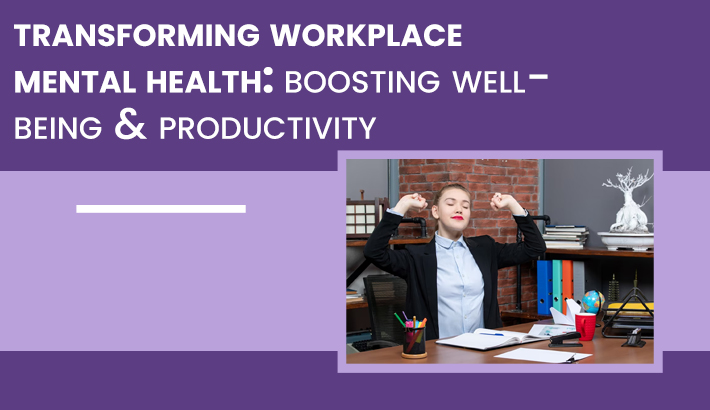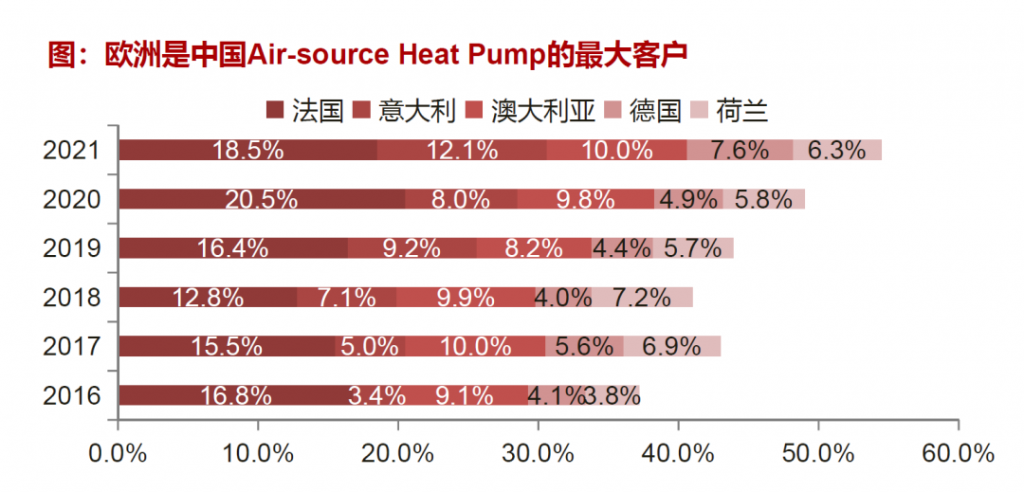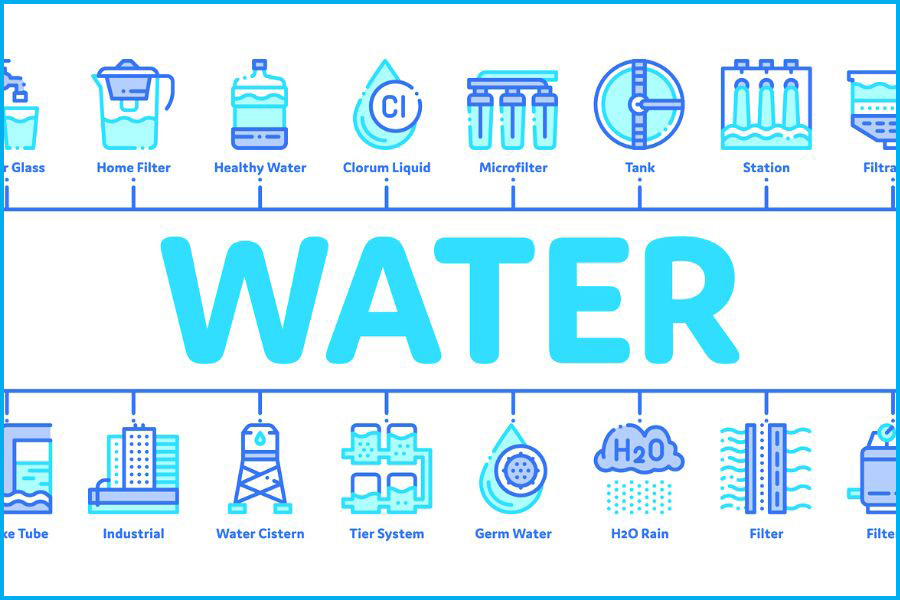Boosting Workplace Productivity Through Effective Mental Health Policies

Table of Contents
Understanding the Link Between Mental Health and Productivity
The correlation between employee mental health and overall workplace performance is undeniable. Poor mental health significantly impacts productivity in various ways, leading to substantial financial and operational losses for businesses. When employees struggle with conditions like anxiety, depression, or burnout, their ability to focus, concentrate, and perform effectively diminishes.
This diminished performance manifests in several ways:
- Increased sick days and absenteeism: Employees suffering from mental health challenges may require more time off work, leading to increased absenteeism and impacting project timelines.
- Reduced concentration and focus: Mental health issues can impair cognitive function, resulting in decreased concentration, reduced efficiency, and a higher error rate.
- Lowered morale and job satisfaction: A negative work environment or lack of mental health support can severely impact morale, leading to decreased job satisfaction and engagement.
- Increased stress and burnout: Excessive workload, lack of work-life balance, and workplace pressures contribute to stress and burnout, significantly impacting productivity.
- Higher employee turnover rates: Employees who feel unsupported in managing their mental health are more likely to seek employment elsewhere, leading to increased recruitment costs and loss of valuable expertise.
Implementing Effective Mental Health Policies in the Workplace
Creating a supportive and inclusive work environment that prioritizes employee wellbeing is paramount. A comprehensive mental health policy is a cornerstone of this approach. Here are crucial components:
- Develop a clear and accessible mental health policy: This policy should clearly outline the organization's commitment to mental health, available resources, and procedures for seeking support.
- Provide access to employee assistance programs (EAPs): EAPs offer confidential counseling, support services, and resources to employees struggling with mental health challenges.
- Offer mental health training for managers and employees: Training equips managers to identify signs of mental health distress, respond appropriately, and create a supportive environment. It also educates employees on self-care strategies and available resources.
- Promote open communication and reduce stigma around mental health: Encourage open conversations about mental health to foster a culture of understanding and support.
- Encourage work-life balance and flexible work arrangements: Offering flexible work options, such as remote work or flexible hours, can significantly reduce stress and improve employee wellbeing.
- Implement stress management programs and initiatives: Programs focusing on stress reduction techniques, mindfulness, and wellbeing workshops can equip employees with coping mechanisms.
Measuring the Impact of Mental Health Policies on Productivity
Evaluating the effectiveness of mental health initiatives is crucial to ensure ongoing improvement and demonstrate ROI. Several methods can be employed:
- Employee satisfaction surveys: Regular surveys can gauge employee perceptions of the workplace environment, mental health support, and overall wellbeing.
- Absenteeism and presenteeism tracking: Monitoring absenteeism and presenteeism (being physically present but unproductive) provides insights into the impact of mental health on productivity.
- Productivity metrics (output, efficiency, quality): Tracking key performance indicators (KPIs) helps determine the effect of mental health initiatives on overall productivity.
- Employee turnover rates: Lower turnover rates indicate a positive impact on employee retention and reduced recruitment costs.
- Return on investment (ROI) analysis: Calculating the financial benefits of mental health initiatives (e.g., reduced absenteeism, increased productivity) demonstrates the return on investment.
Case Studies: Successful Mental Health Initiatives in the Workplace
Many companies have successfully implemented mental health policies, resulting in significant improvements in productivity and employee wellbeing.
- Company A: Improved employee engagement by 25% after implementing a comprehensive mental health program including EAP access and regular wellbeing workshops.
- Company B: Reduced absenteeism by 15% following the introduction of flexible work arrangements and stress management training for managers.
- Company C: Increased employee retention by 10% by fostering a culture of open communication around mental health and providing mental health support resources.
Conclusion: The Importance of Prioritizing Mental Health for Workplace Success
Implementing comprehensive mental health policies offers significant benefits, including improved employee morale, reduced absenteeism, increased productivity, and higher employee retention. The strong link between employee wellbeing and workplace productivity is undeniable. Prioritizing mental health is not just an ethical imperative; it's a strategic investment with a strong return on investment (ROI).
Assess your current mental health policies and identify areas for improvement. By proactively addressing employee mental health, you can create a healthier, more productive, and ultimately more successful workplace. Download our free guide, "Building a Mentally Healthy Workplace," for practical steps to boost workplace productivity through effective mental health policies.

Featured Posts
-
 Daisy May Coopers Stunning Engagement Ring A Cinema Date Reveal
May 03, 2025
Daisy May Coopers Stunning Engagement Ring A Cinema Date Reveal
May 03, 2025 -
 Protivodeystvie Torgovle Lyudmi Itogi Vazhnogo Soveschaniya V Sogde
May 03, 2025
Protivodeystvie Torgovle Lyudmi Itogi Vazhnogo Soveschaniya V Sogde
May 03, 2025 -
 Conservative Party Chairmans Conflict With Reform Uk Explained
May 03, 2025
Conservative Party Chairmans Conflict With Reform Uk Explained
May 03, 2025 -
 Annual Donkey Roundup Rocks Southern California Community
May 03, 2025
Annual Donkey Roundup Rocks Southern California Community
May 03, 2025 -
 See James B Partridge Live In Stroud And Cheltenham
May 03, 2025
See James B Partridge Live In Stroud And Cheltenham
May 03, 2025
Latest Posts
-
 Record Breaking Heat Pump Launched At Utrecht Wastewater Treatment Plant
May 04, 2025
Record Breaking Heat Pump Launched At Utrecht Wastewater Treatment Plant
May 04, 2025 -
 Utrechts Wastewater Plant Home To The Netherlands Biggest Heat Pump
May 04, 2025
Utrechts Wastewater Plant Home To The Netherlands Biggest Heat Pump
May 04, 2025 -
 Netherlands Largest Heat Pump Utrecht Wastewater Plant Innovation
May 04, 2025
Netherlands Largest Heat Pump Utrecht Wastewater Plant Innovation
May 04, 2025 -
 Innovative Tariff Model Dutch Utilities Experiment With Solar Powered Price Reductions
May 04, 2025
Innovative Tariff Model Dutch Utilities Experiment With Solar Powered Price Reductions
May 04, 2025 -
 Kham Pha Loai Qua Xua Nay La Dac San 60 000d Kg
May 04, 2025
Kham Pha Loai Qua Xua Nay La Dac San 60 000d Kg
May 04, 2025
